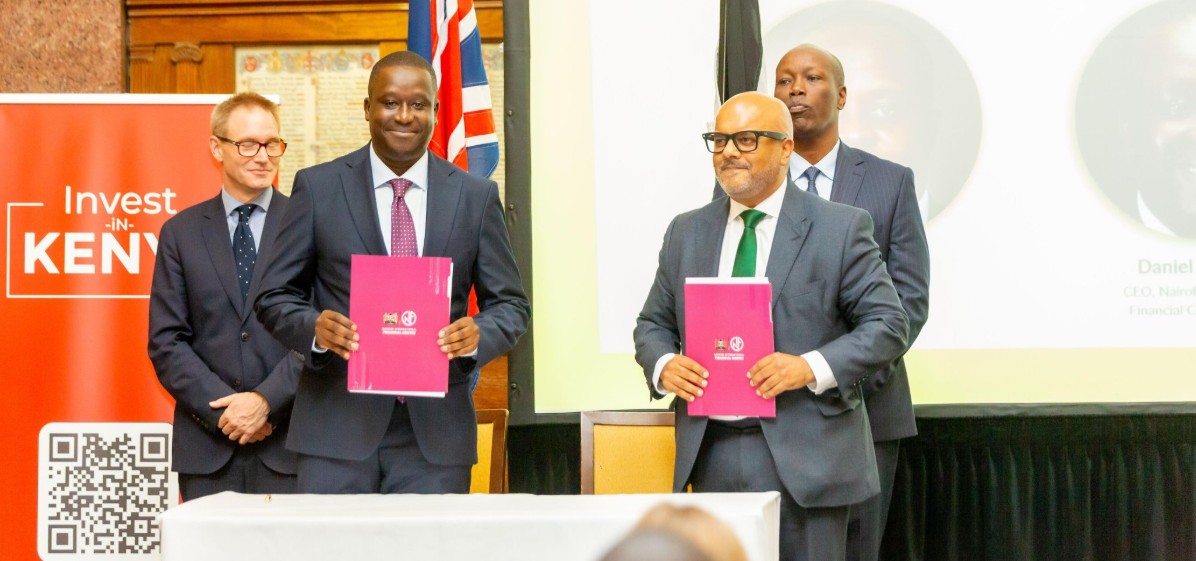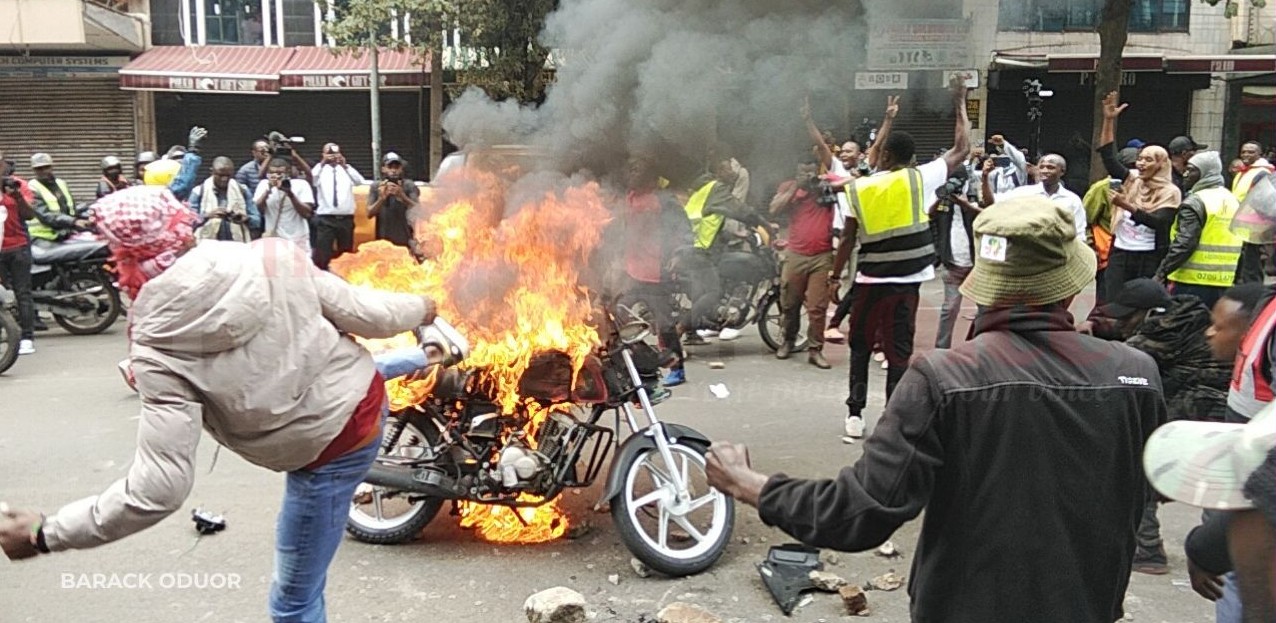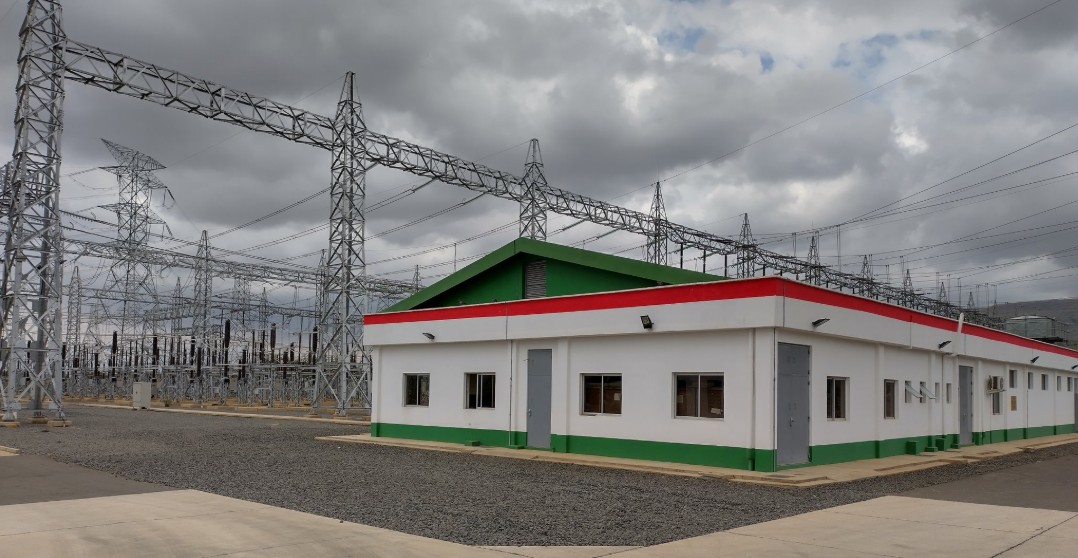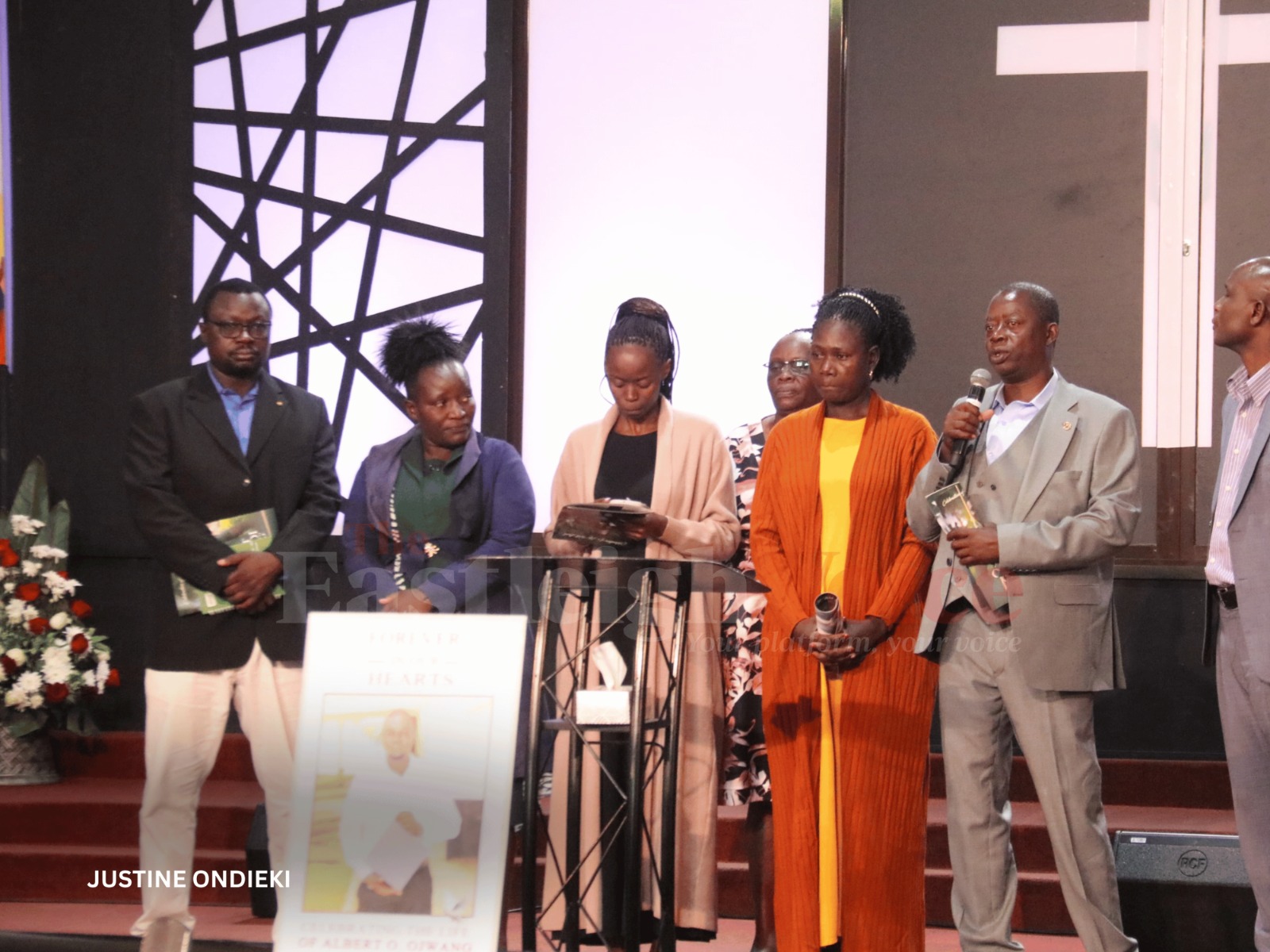Coast traders hope for Ramadan sales boom despite economic challenges
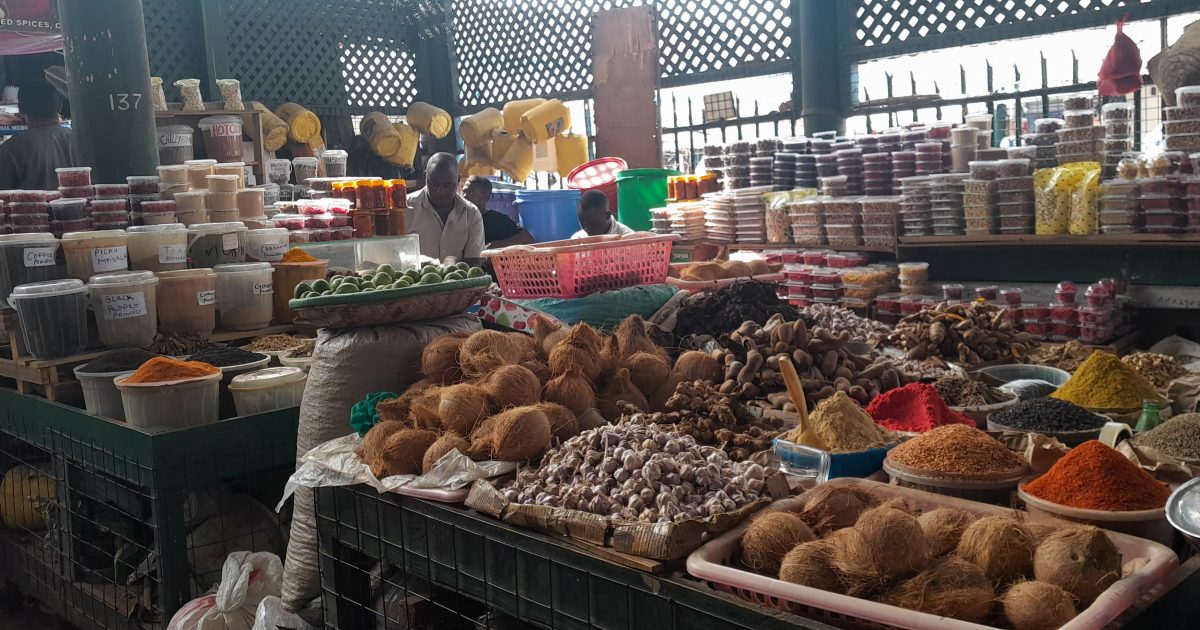
Food traders in particular, both physical and online, are expecting a surge in demand for traditional Ramadan delicacies and essential ingredients.
Business people in Mombasa and Kwale counties are hopeful that they will reap big as the holy month of Ramadhan commences despite economic challenges resulting from high inflation.
Food traders in particular, both physical and online, are expecting a surge in demand for traditional Ramadan delicacies and essential ingredients.
More To Read
- Hundreds of vulnerable families in Kamukunji receive Ramadan food aid
- Rare calendar alignment marks start of Ramadan 1446 AH on March 1, 2025
- Unity in sharing: Majengo residents celebrate Eid amid economic challenges
- Muslims in Eastleigh mark Eid-ul-Fitr with prayers, calls for unity
- Muslims across the country celebrate Eid-ul-Fitr to mark end of Ramadan
- Ruto leads Kenyans in wishing Muslims Eid Mubarak
With families preparing for iftar (the breaking of the fast) and suhoor (the pre-dawn meal), there is an increased focus on dates, sweets, savoury snacks, and other staples.
Traders in Kwale said on Monday that they were hopeful even though the public's purchasing power had declined compared to previous years.
Data from the Kenya National Bureau of Statistics (KNBS) showed that inflation rose to the highest levels in five years last month, breaking the Central Bank of Kenya's (CBK) ceiling of 7.5 per cent to hit 7.9 per cent.
Another survey by the Pan Africa research network Afro barometer, whose Kenyan unit is based at the University of Nairobi's (UON) Institute of Development Studies, found that nine out of 10 Kenyans believe the economy is bad.
Hamisi Juma, who sells potatoes at Mvindeni Market in Kwale, said, however, "We are hopeful that our sales will improve this month. Muslims tend to spend more on food in this month because of its nature. Most faithful buy food items in bulk and donate it to the less fortunate."
He added, "A customer who normally buys a 5kg tin of potatoes is now buying a full bucket and sometimes a sack."
Hamisi said the best sellers during Ramadan are cereals, rice, vegetables, spices, meat, potatoes, tomatoes, wheat flour and gram flour.
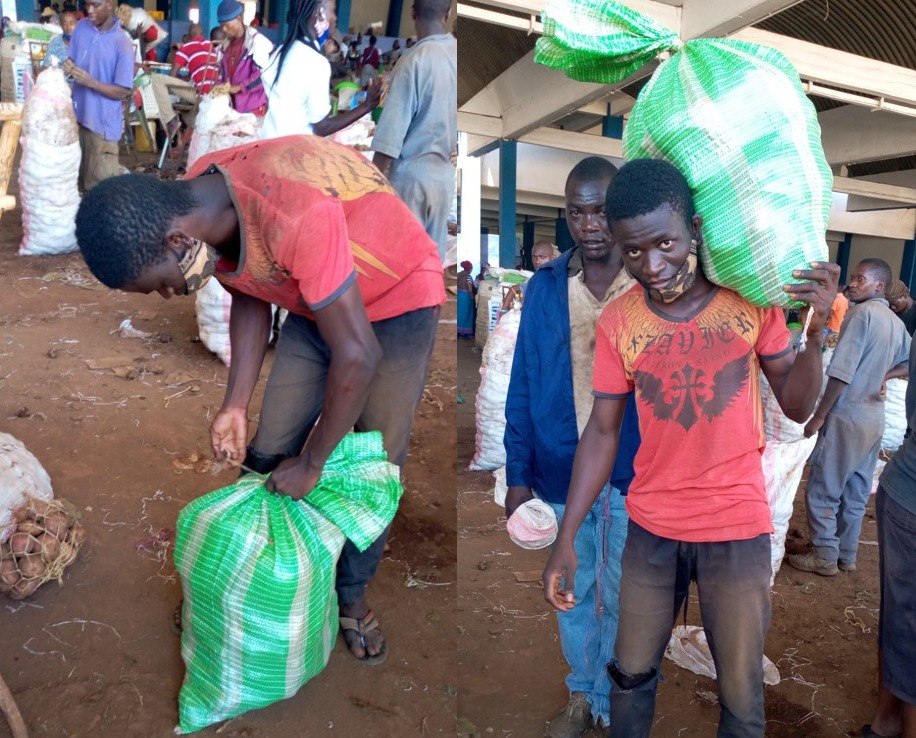 A combination picture of porter Shehe Kenga helping a customer carry goods from Mvindeni Market in Kwale County at the start of Ramadan on March 11, 2024, and the porter standing with trader Hamisi Juma. (Photos: Mishi Gongo)
A combination picture of porter Shehe Kenga helping a customer carry goods from Mvindeni Market in Kwale County at the start of Ramadan on March 11, 2024, and the porter standing with trader Hamisi Juma. (Photos: Mishi Gongo)
Mwanaisha Mohammed, who sells onions, said her sales had not improved but that she anticipated a boom as Ramadan progressed.
Buyers, however, complained that prices had doubled with the start of the holy month.
"Traders are taking advantage of the month and hiking prices. We urge the government to come to our rescue," said Bijuma Swaleh.
A spot check at shopping centres found good turnouts, with traders selling non-food items such as utensils and electronics also hopeful about higher sales.
In Mombasa, a spot check found many traders at the bustling Marikiti Market selling dates.
Khalid Amin said that during Ramadhan he sells a box of dates per customer, contrary to the sale of the same amount over two or three days.
“This business on a normal day is quite challenging because not many people buy them, so it's not profitable," he said.
Coconut sales also increased as many in Mombasa use the fruit and its oil to prepare meals during the holy month.
Amin said that in this season, his customers like to purchase dates, coconuts, fresh fruits, vegetables, halal meats, bread, rice, cheese, sweets and the rosy pink Rooh Afza syrup for drinks.
Water vendors experience low day sales in the sweltering Mombasa as fasting also means no water.
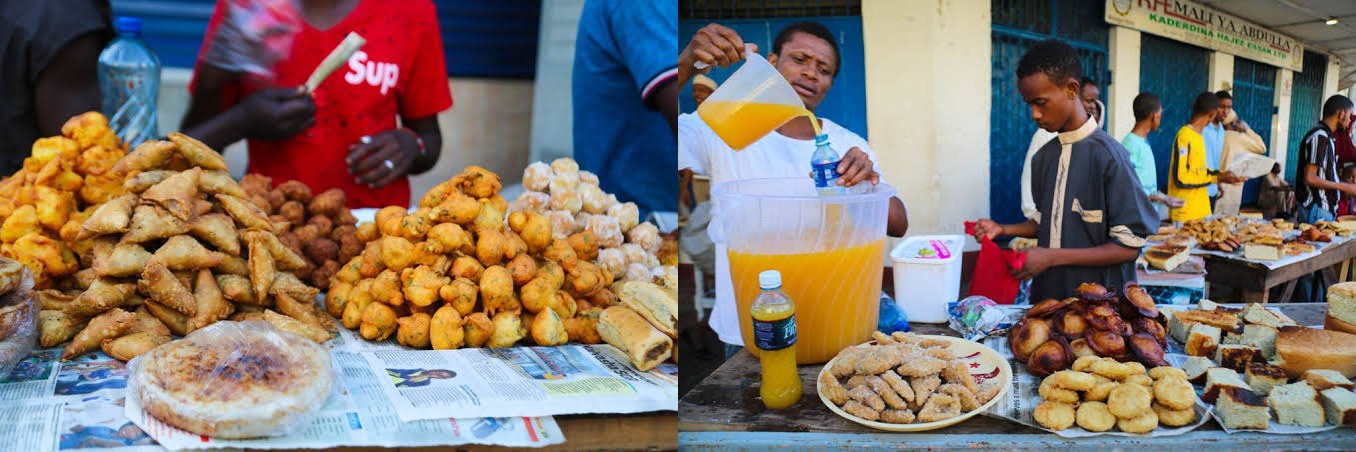 A combination picture of traders selling various food items at the Marikiti Market in Mombasa County, at the start of the holy month of Ramadan on March 11, 2024. (Photo: Farhiya Hussein)
A combination picture of traders selling various food items at the Marikiti Market in Mombasa County, at the start of the holy month of Ramadan on March 11, 2024. (Photo: Farhiya Hussein)
Dates are traditionally eaten to break the fast after sunset as the sugar is a quick source of energy. They are also rich in nutrients and easy to digest.
Mahmoud Abdallah, Secretary of the Marikiti Market Traders Association, expressed optimism despite a slow start this year, noting a decrease in customer inquiries compared to previous years.
The market heavily relies on imports from India, Iran, and Tanzania, which see increased demand during Ramadan.
Ramadhan is the ninth month of the Islamic Lunar Calendar, observed by Muslims worldwide as a period of fasting, prayer, reflection, generosity, and devotion.
It typically spans 29 or 30 days and commences in early March based on moon sightings. It constitutes one of the five pillars of Islam, involving refraining from food, drink, and other physical needs from dawn until sunset.
Traders have begun preparations, expecting goods to arrive within the next 15 days. Ramadan proves lucrative for them with small businesses even tripling their daily profits during the month.
For Marikiti traders, hours are extended and the market remains open on weekends, with heightened security measures in place, including police patrols and CCTV surveillance.
Business people appreciated efforts by local authorities to alleviate financial burdens, through strategies such as waiving stall rates.
Market Association chair Muhammad Ali urged the Muslim community to embody self-discipline, modesty, and sincere devotion to Allah throughout the sacred month.
Top Stories Today
